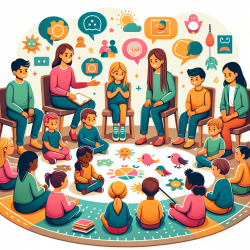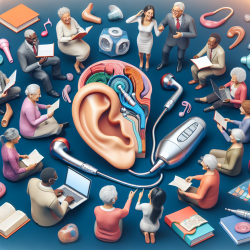As a practitioner dedicated to improving the lives of children with autism spectrum disorder (ASD), it's crucial to stay informed about evidence-based interventions. A recent study titled Examining the Impact of Group-Based Social Skills Intervention in Autistic Children Aged Eight to 15 Years provides valuable insights into how group-based social skills interventions (GSSI) can significantly enhance social functioning in autistic children. This blog will break down the study's findings and offer actionable steps for practitioners to implement these interventions effectively.
Study Overview
The study involved 30 verbal autistic children aged eight to 15 years, with intelligence quotients (IQ) above 70. These children participated in 12 weekly GSSI sessions, each lasting 90 minutes, over three months. The intervention was led by interdisciplinary therapists, and parents were involved to reinforce the skills taught in the sessions.
Key Findings
- Improved Social Communication: The Social Communication Questionnaire (SCQ) scores showed a significant decline from pre-therapy (T1 = 21.87) to post-therapy (T2 = 18.57) and maintained this improvement three months post-intervention (T3 = 18.57).
- Enhanced Social Responsiveness: The parent-rated Social Responsiveness Scale 2 (p-SRS-2) scores also demonstrated a significant decrease in difficulties across various social domains from pre-therapy (T1 = 73.00) to post-therapy (T2 = 64.57) and three months post-therapy (T3 = 64.30).
- Parent Involvement: The study emphasized the importance of involving parents to ensure the generalization and maintenance of social skills in real-world settings.
Actionable Steps for Practitioners
Based on the study's findings, here are some steps practitioners can take to implement GSSI effectively:
- Structure Sessions: Each session should include a mix of free play, group training, and circle time to summarize the day's learning.
- Involve Parents: Provide parents with summaries of each session and assign homework to reinforce the skills taught.
- Use Evidence-Based Tools: Utilize tools like the SCQ and p-SRS-2 to assess progress and make data-driven decisions.
- Customize Lesson Plans: Tailor the lesson plans to suit different age groups and individual needs.
Encouraging Further Research
While the study shows promising results, it also highlights the need for further research to explore the long-term sustainability of GSSI. Practitioners are encouraged to participate in or conduct additional studies to validate these findings and refine intervention strategies.
To read the original research paper, please follow this link: Examining the Impact of Group-Based Social Skills Intervention in Autistic Children Aged Eight to 15 Years.










